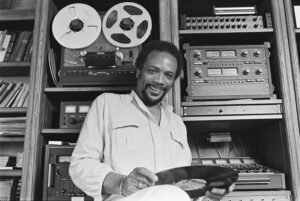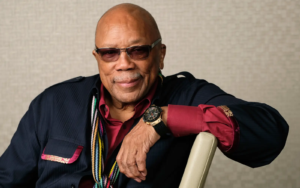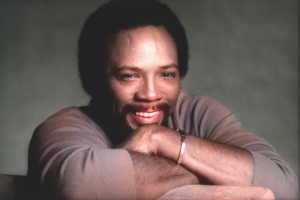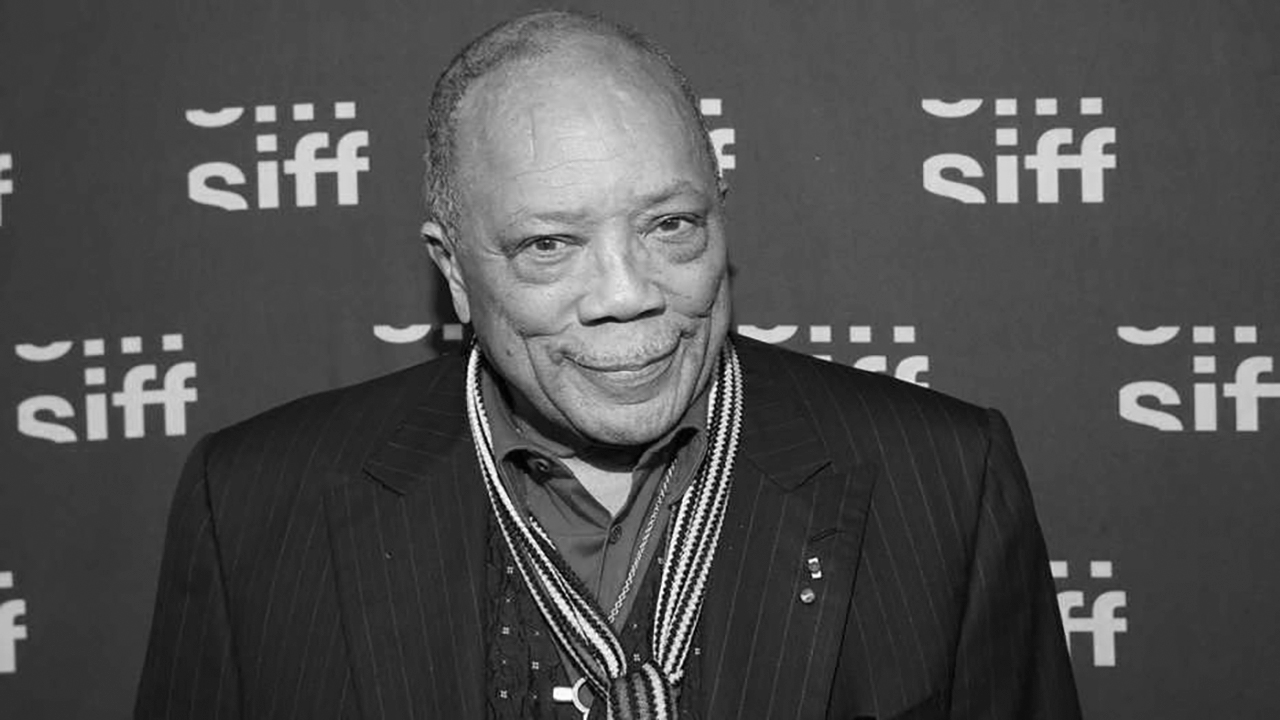The music world mourned a profound loss with the Quincy Jones dies at 91. Jones, a legendary figure in American music, redefined genres, broke racial barriers, and shaped the soundscape of the 20th and 21st centuries. His passing leaves an irreplaceable void in the industry, but his enduring influence will continue to resonate across generations. This blog reflects on Quincy Jones’s extraordinary life, tracing his rise from a talented young musician to a pioneering producer and cultural icon, whose impact on music and society will be felt for decades.
Early Life and Musical Beginnings

The Humble Beginnings of Quincy Jones
Born in Chicago on March 14, 1933, Quincy Delight Jones Jr. faced a challenging childhood marked by racial discrimination and economic hardship. However, his passion for music emerged early. By the age of 10, he was learning to play the trumpet and piano, paving the way for a lifelong love affair with music. Jones’s first major breakthrough came as he joined Lionel Hampton’s jazz band, exposing him to industry legends and setting the foundation for his future.
Rise to Fame

Quincy Jones’s Iconic Collaborations and Breakthrough Moments
Jones’s reputation skyrocketed during the 1950s and 60s as he collaborated with renowned artists such as Frank Sinatra and Ray Charles. He made history as the first Afro-American vice-president of Mercury Records, producing iconic works that challenged genre boundaries. Jones’s keen sense for innovation and collaborative spirit set him apart, helping artists unlock new creative potential and earning him Grammy recognition.
Contributions to Music and Culture

The Unmatched Influence of Quincy Jones on Modern Music
Quincy Jones’s impact on music transcended genres, from jazz and pop to hip-hop and film scoring. His work with Michael Jackson on albums like Thriller and Bad exemplified his gift for blending soundscapes, transforming music production into an art form. Jones’s influence extended to culture, empowering artists across racial and cultural divides. His TV productions and philanthropic efforts further solidified his role as a champion of cultural progress.
Legacy and Tributes
Remembering Quincy Jones: Tributes from Music’s Biggest Icons
The music community and fans around the globe paid heartfelt tributes to Quincy Jones, reflecting on his enduring legacy and unparalleled influence. Music legends, producers, and fans shared memories and moments they cherished. Quincy Jones’s cultural impact extended far beyond music, influencing attitudes toward diversity and artistic freedom. His memory serves as an inspiration for artists and future generations, who will undoubtedly continue to draw from his immense contributions.
The Reason ❤️ Thank you for everything Mr. Quincy Jones. pic.twitter.com/wS1pVFFLHG
— Abel Tesfaye (@theweeknd) November 4, 2024
Legendary producer Quincy Jones has died at the age of 91.
Some of his most notable work includes Michael Jackson’s ‘Thriller’, Frank Sinatra, and more. pic.twitter.com/0boaH0EkVe
— Pop Base (@PopBase) November 4, 2024
Rest in peace, Quincy…
In honor of his legacy, here’s a throwback to an incredible moment:
Quincy Jones and Herbie Hancock in the studio, exploring the groundbreaking Fairlight CMI synthesizer. Herbie’s demonstration showcases the brilliance of both the technology and their… pic.twitter.com/DOwV9SMRJd
— Melodies & Masterpieces (@SVG__Collection) November 4, 2024
FAQs
Frequently Asked Questions About Quincy Jones
- What are Quincy Jones’s most famous productions?
Some of his most celebrated works include Thriller by Michael Jackson, The Color Purple soundtrack, and Back on the Block, an album that showcases his versatility across genres. - How did Quincy Jones influence modern music?
Jones revolutionized music production by merging different genres and embracing technological advancements. He introduced a new level of production quality that has set standards for the industry. - What awards did Quincy Jones win in his lifetime?
Jones won 28 Grammy Awards and received 80 nominations, making him one of the most decorated Grammy artists in history. He was also honored with an Academy Award nomination and a Kennedy Center Honor. - Who were some of Quincy Jones’s notable collaborators?
Jones worked with artists like Frank Sinatra, Michael Jackson, Ray Charles, and Aretha Franklin, each collaboration pushing creative boundaries and redefining the artist’s sound. - What obstacles did Quincy Jones face in his career?
Jones overcame racial prejudice in the industry and severe health issues. His resilience and determination allowed him to shatter barriers, opening doors for future artists.

Conclusion
As we remember Quincy Jones, we celebrate the vast legacy of a man who forever changed the face of American music. His groundbreaking work as a musician, producer, and cultural visionary leaves an indelible mark on history. Quincy Jones’s life is a testament to the power of creativity, resilience, and commitment to excellence. Quincy Jones dies at 91 is a significant moment for the music world, and we encourage everyone to explore his monumental body of work, from timeless classics to groundbreaking productions. Through his music, Quincy Jones’s spirit and contributions will continue to inspire future generations.

